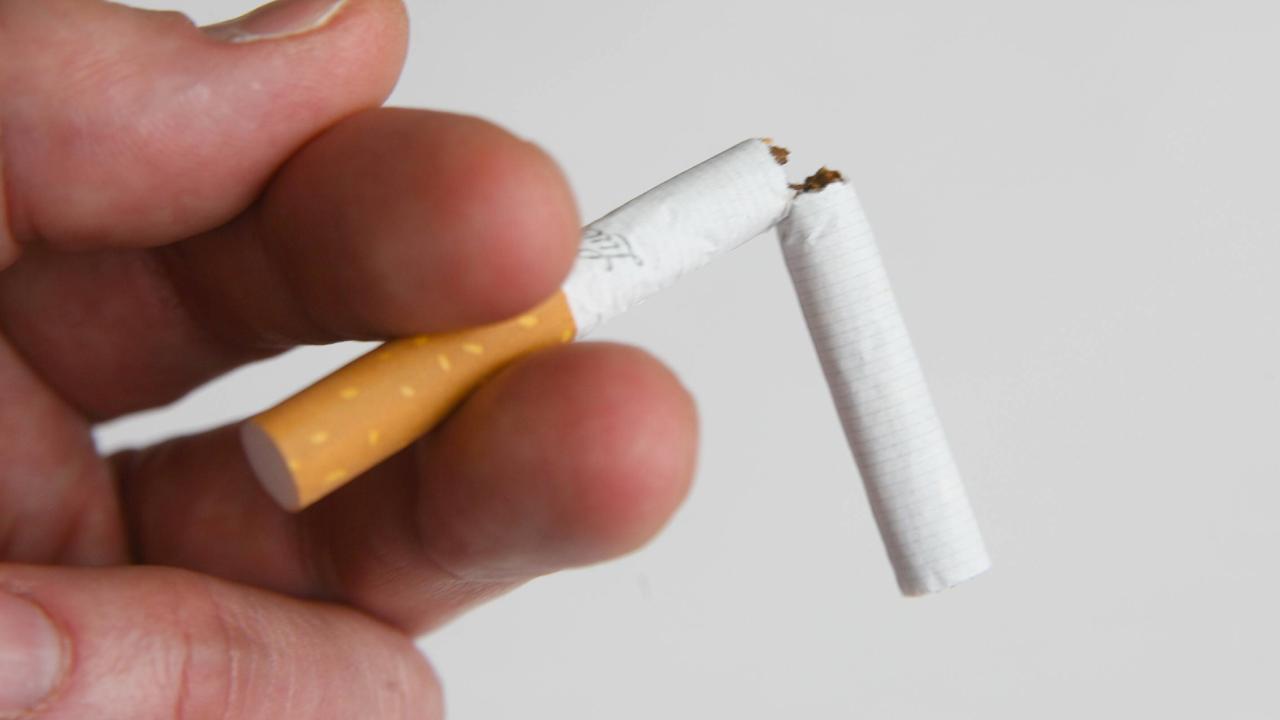Noting that the two main risks that determine the severity of gum disease are diabetes and smoking, experts say that the problem is not noticed in smokers until the teeth become loose and all teeth can be lost even at a young age. Periodontology Specialist Dr. stated that one of the main causes of oral cancer is smoking. Lecturer Member Kübra Güler said, “Smoking can damage the cells in the mouth and throat and lead to the development of cancer. “Quitting or reducing smoking is important to reduce the risk of oral cancer.” said.
Üsküdar Dental Hospital Periodontology Specialist Dr. Lecturer Member Kübra Güler, evaluated the effects of tobacco use on oral and dental health.
“Smoking causes the development of gum diseases”
Dr. states that healthy gums are generally pink in color and tightly adhered to the teeth. Lecturer Member Kübra Güler“Additionally, healthy gums do not bleed in any way. These features are telltale signs of identifying healthy gums. Gum diseases are often associated with microorganisms. Disruption of the balance of microorganisms in the mouth can lead to the development of gum diseases. This balance may differ for each individual and may be disrupted if optimal health conditions are not provided. The main factors that affect the development of gum diseases include poor oral hygiene, inadequate care of the gums and smoking. Therefore, it is important for each individual to determine their own oral hygiene habits and perform regular maintenance.” said.
Oral infections are linked to heart disease…
Noting that research conducted in recent years has shown that oral health has a significant impact on general health, Dr. Lecturer Member Kübra Güler“Infections that occur in the mouth can spread to other parts of the body and cause negative effects on general health. “For example, gum disease can increase the inflammatory response in the body and has been linked to other systemic health problems such as heart disease.” he informed.
How does the use of cigarettes and other tobacco affect oral and dental health?
“The use of cigarettes and other tobacco products has serious harmful effects on oral and dental health.” said Dr. Lecturer Member Kübra Güler“Smoking can increase the severity of gum diseases and complicate treatment processes. Gingivitis and other oral health problems are more common in smokers. Additionally, smoking can reduce blood supply to the gums and slow down the healing process. “Smoking can also lead to bone loss and the development of serious gum diseases such as periodontitis.” said.
How does smoking duration and daily amount consumed affect oral and dental health?
Dr. noted that with a decision taken in 2017, periodontology experts emphasized two main risk factors that determine the severity of gum disease. Lecturer Member Kübra Güler, “The first of these factors is diabetes and the other is smoking. Studies on smoking show that gum disease is less severe in people who smoke less than 10 cigarettes a day. However, it has been determined that the disease can progress rapidly and lead to more serious consequences in those who smoke more than 10 cigarettes a day. For this reason, it is important to encourage patients who smoke to quit smoking. It may not be possible to quit smoking completely. In this case, reducing daily cigarette consumption to at least 10 cigarettes may be an important step in reducing the effects of gum disease.” he suggested.
Dr. states that reducing or quitting smoking can slow down the progression of gum disease and help achieve more effective treatment results. Lecturer Member Kübra Güler“Therefore, it is important for smokers to pay attention to their gum health and reduce smoking as much as possible.” said.
“Smoking can pose a serious health risk by hiding gum disease.”
Stating that smoking has serious effects on oral health, Dr. Lecturer Member Kübra Güler“We cannot say that smoking directly causes sores in the mouth, but it can lead to diseases such as necrotizing sialometaplasia, which is a rare condition. This disease causes wounds in the area where the salivary gland originates. However, smoking can mostly hide gum disease because bleeding does not occur. Normally, one of the symptoms of gum disease is bleeding. However, in smokers, there is no bleeding and the disease progresses silently. In this case, the patient often does not notice the problem until he notices that his teeth are loose. This situation can lead to the loss of all teeth in people aged 30-35. Therefore, smoking can pose a serious health risk by hiding gum disease and causing it to progress.” he said.
What kind of treatment is applied for gum diseases?
Dr. also explains that the treatment of gum diseases generally includes procedures such as gum cleaning and root cleaning. Lecturer Member Kübra Güler“However, smoking may affect the treatment process. In smokers, the healing process may be longer and the effectiveness of the treatment may be reduced. Therefore, it is important to avoid smoking or start smoking cessation process during the treatment of gum diseases.” said.


